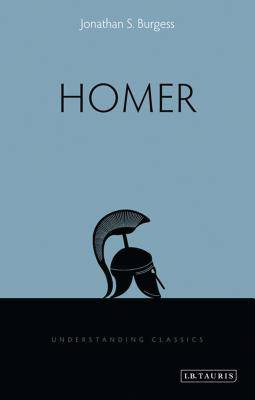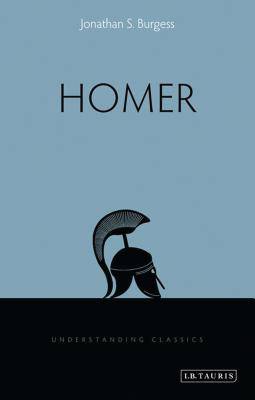
- Afhalen na 1 uur in een winkel met voorraad
- Gratis thuislevering in België vanaf € 30
- Ruim aanbod met 7 miljoen producten
- Afhalen na 1 uur in een winkel met voorraad
- Gratis thuislevering in België vanaf € 30
- Ruim aanbod met 7 miljoen producten
Zoeken
Omschrijving
What reader could fail to be enthralled by the Iliad and the Odyssey, those greatest heroic epics of antiquity? Yet the author of those immortal text remains, in the end, an enigma. The central paradox of 'Homer' is that- while recognized as producing poetry of incomparable genius- even in the ancien world nobody knew who he was. As a result, the myth-maker became the subject of myth. For the satirist Lucian (c.125-180 CE) he ws a captive Babylonian. Other traditions have Homer born in Smyrna, or on the island of Chios, or portray him as a blind and wandering minstrel. In his new and authoritative introduction, Jonathan S. Burgess addresses fundamental questions of provenance and authorship. Besides conveying why these epics have been cherished down the ages, he discusses their historical sources and the possible impact on the Iliad and Odyssey of Indo-European, Near Eastern and folktale influences. Tracing their transmission through the ancient, medieval and modern periods, the author further examines questions of theory and reception.
Specificaties
Betrokkenen
- Auteur(s):
- Uitgeverij:
Inhoud
- Aantal bladzijden:
- 224
- Taal:
- Engels
- Reeks:
Eigenschappen
- Productcode (EAN):
- 9781848858633
- Verschijningsdatum:
- 31/12/2014
- Uitvoering:
- Paperback
- Formaat:
- Trade paperback (VS)
- Afmetingen:
- 137 mm x 211 mm
- Gewicht:
- 249 g

Alleen bij Standaard Boekhandel
+ 64 punten op je klantenkaart van Standaard Boekhandel
Beoordelingen
We publiceren alleen reviews die voldoen aan de voorwaarden voor reviews. Bekijk onze voorwaarden voor reviews.











